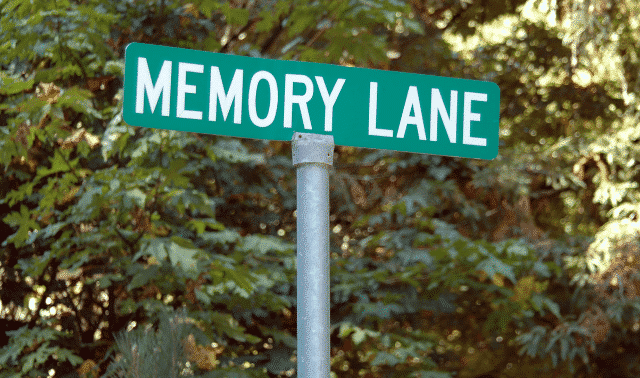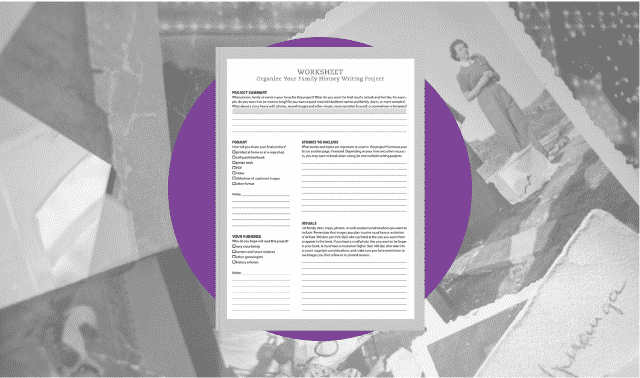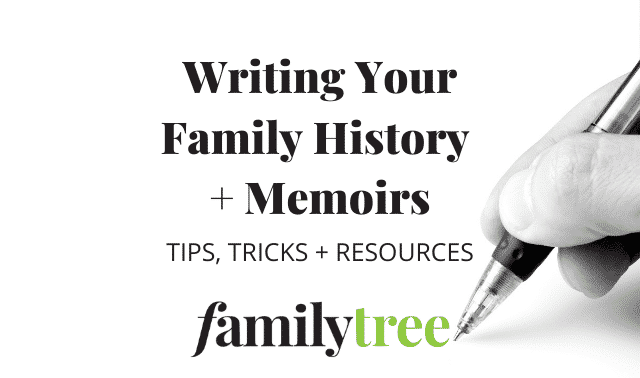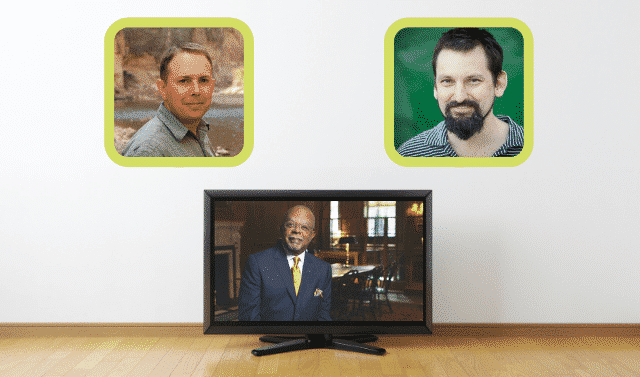Sign up for the Family Tree Newsletter Plus, you’ll receive our 10 Essential Genealogy Research Forms PDF as a special thank you!
Get Your Free Genealogy Forms
"*" indicates required fields

Recording your own history can be a rewarding experience, both personally and for your genealogy research—you never know what clues you’ll recall! But it can be frustrating when you don’t remember certain things as clearly as you’d like.
Below are four strategies to jog your memories. Use these to evoke the feelings and facts of specific time periods, people, places or events in your past:
1. Listen to music.
Music can be especially powerful for evoking emotional memories. Play songs from the time period in question and see what feelings and memories surface. Pull out your old music albums, cassette tapes or CDs to remind yourself of your old “must-listen” albums. If you no longer own a device that can play these (or the cassette tape has deteriorated too much), look for updated formats at your local library. You could also use YouTube to look for individual songs or playlists of popular songs for a certain time period. Use search terms to bring up the name of a singer, band, song or album. Try a phrase like songs from the 40s or 1960s music, or do similar searches in your web browser. Billboard Top 100 songs 1955 brings up lists of hits you can then track down individually. If that search doesn’t work for you, try searching the Internet Archive. Its Live Music Archive is strongest for music recorded since the mid-1980s, but there is an enormous collection of Grateful Dead music (for example) that you can stream or download. Browse or search for the recording artists and songs you listened to. Or go way back into your family’s music memories with a digital collection of more than 3000 78rpm records and cylinder recordings from the early 20th century.
2. Visit a place.
Travel back to the setting of an event or time period. Walk through your old neighborhood, visit your alma mater or stop at the church or courthouse where you were married. If you can’t go to the actual place you want to remember, find a local surrogate to recreate the ambience. Visit a local beach, suburban street, high school football game or neighborhood street festival. The sights, sounds and smells (funnel cake!) may trigger memories. Or make a virtual visit to that place via Google Earth; try the Street View to see the place at eye level. Even things that have changed may make you better recall what was there before.
3. Look at pictures and memorabilia.
Get out your old photo albums, yearbooks, date books, letters, documents, clothing, jewelry, collections, awards, trophies and other mementoes of the past. Spend some time studying them in detail. Who appears in your memorabilia? What event or memory does it represent? Why did you keep it? What was going on in the background? What related memories does the sight of that person/object/place bring to mind?
4. Reminisce.
Contact someone who was part of your life during the time you’re trying to recall. After reconnecting, see if they’re willing to talk about “old times.” Compare memories: It can be both interesting and revealing when you recall things differently. Ask if they recall the things you’re trying to remember—why you all did something, or the name of the person on the left in a photo you can share. A couple words of advice: Be considerate of those whose memories of that time may be unpleasant or who may not want to bring up the past. And don’t argue when your memories conflict.
In the end, you still may not remember every detail as crisply as you’d like. But life-story writing is rewarding when it’s about your feelings and thoughts about the past, not just the memories themselves. Take special note of how your perceptions of the past may have changed (or not).
Reflect on how an event or person changed you—even if you don’t recall them perfectly. Note life lessons you took away with you, particularly those that have guided your life since. Write these things down.
A guided journal such as my book Story of My Life is the perfect place to capture your thoughts and memories. It’s organized by time period and contains hundreds of memory prompts and reflection questions.
Related Reads
ADVERTISEMENT








